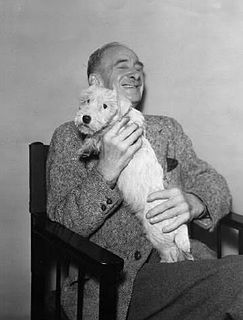 W
WCecil Charles Windsor Aldin, was a British artist and illustrator best known for his paintings and sketches of animals, sports, and rural life. Aldin executed village scenes and rural buildings in chalk, pencil and also wash sketching. He was an enthusiastic sportsman and a Master of Fox Hounds, and many of his pictures illustrated hunting. Aldin's early influences included Randolph Caldecott and John Leech.
 W
WAndrew Allan was a Scottish-born Canadian businessman and financier. In 1882, he succeeded his brother, Sir Hugh Allan, of Ravenscrag, in the Allan family's Canadian enterprises that were centred on the Allan Line Royal Mail Steamers, but also included banking and railways. He was Master of Foxhounds for the Montreal Hunt.
 W
WCharles Noel Somerset, later 4th Duke of Beaufort, was a British Tory politician who sat in the House of Commons from 1731 until 1745 when he succeeded to the peerage as Duke of Beaufort.
 W
WHenry Somerset, 1st Duke of Beaufort, KG, PC was a Welsh politician who sat in the House of Commons at various times between 1654 and 1667, when he succeeded his father as 3rd Marquess of Worcester. He was styled Lord Herbert from 1644 until 3 April 1667. The Dukedom of Beaufort was bestowed upon him by King Charles II in 1682.
 W
WHenry Somerset, 2nd Duke of Beaufort, KG PC was an English peer and politician. He was the only son of Charles Somerset, Marquess of Worcester, and Rebecca Child. He was styled Earl of Glamorgan until 1698, and Marquess of Worcester from 1698 until his grandfather's death on 21 January 1700, when he succeeded him as 2nd Duke of Beaufort.
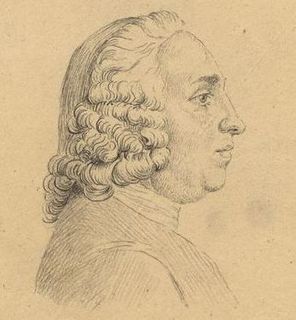 W
WHenry Somerset-Scudamore, 3rd Duke of Beaufort born Henry Somerset, was an English nobleman and peer. He was the elder son of Henry Somerset, 2nd Duke of Beaufort and his second wife, Rachel Noel. As his father's eldest son and heir to his father's title he was known as (styled) Marquess of Worcester, a courtesy title. On his father's death on 24 April 1714 he succeeded him and became 3rd Duke of Beaufort.
 W
WHenry Somerset, 5th Duke of Beaufort was an English courtier and politician. He was the only son of Charles Noel Somerset, 4th Duke of Beaufort and Elizabeth Somerset, Duchess of Beaufort. Styled Marquess of Worcester from 1746, at his father's death on 28 October 1756, he succeeded him as 5th Duke of Beaufort, 7th Marquess of Worcester, 11th Earl of Worcester, and 13th Baron Herbert.
 W
WHenry Charles Somerset, 6th Duke of Beaufort, KG, styled Marquess of Worcester until 1803, was a British politician.
 W
WMajor Henry Somerset, 7th Duke of Beaufort, KG, styled Earl of Glamorgan until 1803 and Marquess of Worcester between 1803 and 1835, was a British peer, soldier, and politician.
 W
WHenry Charles FitzRoy Somerset, 8th Duke of Beaufort KG, PC, DL, styled Earl of Glamorgan until 1835 and Marquess of Worcester from 1835 to 1853, was a British peer, soldier, and Conservative Party politician. He served as Master of the Horse between 1858 and 1859 and again between 1866 and 1868.
 W
WCaptain Henry Adelbert Wellington FitzRoy Somerset, 9th Duke of Beaufort JP, DL, styled Earl of Glamorgan until 1853 and Marquess of Worcester between 1853 and 1899, was a British peer.
 W
WHenry Hugh Arthur FitzRoy Somerset, 10th Duke of Beaufort, KG, GCVO, GCC, PC, of Badminton House in Gloucestershire, styled Marquess of Worcester until 1924, was a peer, landowner, society figure and a great authority in the fields of horse racing and fox-hunting. As a relative and very close friend of the Royal Family, he held the office of Master of the Horse for 42 years (1936–1978), the longest to hold the position. He founded the Badminton Horse Trials and was deemed "the greatest fox-hunter of the twentieth century"; his long tenure as Master of the Beaufort Hunt led to his being universally nicknamed Master and his car bore the private numberplate MFH1. In 1980 he published the authoritative book "Fox-Hunting".
 W
WSir George Bevan Bowen was a Welsh Conservative landowner and county officer in Pembrokeshire.
 W
WSir George Bullough, 1st Baronet was a late Victorian playboy and was an owner and breeder of thoroughbred racehorses.
 W
WJohn Crocker Bulteel (1793–1843) of Fleet, Holbeton, in South Devon, was a Whig MP for South Devon 1832-4 and was Sheriff of Devon in 1841. He was Master of the Dartmoor Foxhounds and bred the finest pack of hounds in England.
 W
WAlgernon Edwyn Burnaby of Baggrave Hall, Leicestershire, was an English landowner, soldier, and Justice of the Peace, and a cousin of Queen Elizabeth, the Queen Mother. He was Master of the Quorn Hunt.
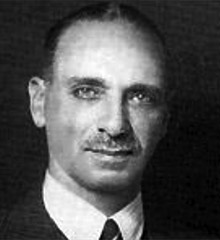 W
WSir Julien Cahn, 1st Baronet was a British businessman, philanthropist and cricket enthusiast.
 W
WFrederick Ambrose Clark was an American heir and equestrian.
 W
WJohn Corbet (1751–1817) of Sundorne, was an English sportsman of the Shropshire landed gentry and politician who sat in the House of Commons from 1775 to 1780.
 W
WThomas Foley, 3rd Baron Foley PC, DL, was a British peer and Whig politician. He served as Captain of the Honourable Corps of Gentlemen Pensioners under Lord Grey between 1830 and 1833.
 W
WLieutenant-Colonel Sir John Gilmour, 2nd Baronet, was a Scottish Unionist politician. He notably served as Home Secretary from 1932 to 1935.
 W
WCharles Augustus Stanhope, 8th Earl of Harrington, known as Viscount Petersham from 1866 to 1881, was a British peer and successful polo player.
 W
WHenry Weysford Charles Plantagenet Rawdon-Hastings, 4th Marquess of Hastings and 9th Earl of Loudoun, styled Lord Henry Rawdon-Hastings from birth until 1851, was a British peer. He was also, starting from most senior barony, 21st Baron Grey of Ruthyn, 20th Baron Botreaux, 19th Baron Hungerford, and 17th Baron Hastings.
 W
WSir Stephen Lewis Edmonstone Hastings was a British Conservative politician who was elected Member of Parliament for Mid Bedfordshire in a 1960 by-election and held it until he stood down at the 1983 general election. He was also a soldier, MI6 operative, Master of Foxhounds and author.
 W
WSir Gilbert Heathcote, 4th Baronet of Normanton Park, Rutland, was a British Member of Parliament.
 W
WLieutenant-Colonel Warner Francis John Plantagenet Hastings, 15th Earl of Huntingdon, DL was a British peer, and Deputy Lieutenant of King's County, Ireland.
 W
WMarcus Richard Kimball, Baron Kimball was a British Conservative politician.
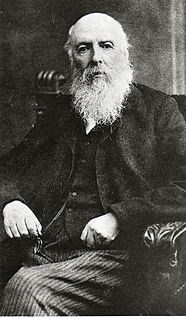 W
WSir Wilfrid Lawson, 2nd Baronet was an English temperance campaigner and radical, anti-imperialist Liberal Party politician who sat in the House of Commons variously between 1859 and 1906. He was recognised as the leading humourist in the House of Commons.
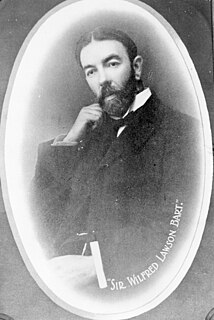 W
WSir Wilfrid Lawson, 3rd Baronet, of Brayton was an English Liberal politician who sat in the House of Commons from 1910 to 1916. He was also a keen sportsman who excelled at cricket and steeplechasing.
 W
WCharles Henry Wyndham, 3rd Baron Leconfield was a British peer, army officer and political figure. He succeeded his father as third Baron Leconfield in 1901.
 W
WReginald Lindesay-Bethune, 12th Earl of Lindsay, JP, DL, known as Viscount Garnock 1894-1917, was a Scottish nobleman.
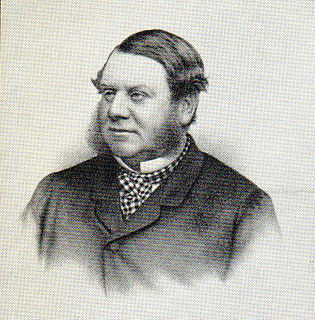 W
WHenry Lowther, 3rd Earl of Lonsdale was a British nobleman and Conservative politician.
 W
WHugh Cecil Lowther, 5th Earl of Lonsdale, was an English peer and sportsman.
 W
WWilliam Lowther, 1st Earl of Lonsdale KG, also known as Sir William Lowther, 2nd Baronet, of Little Preston, from 1788 to 1802, and William Lowther, 2nd Viscount Lowther, from 1802 to 1807, was a British Tory politician and nobleman known for building Lowther Castle.
 W
WEdgar Lubbock LLB was an English amateur footballer who twice won the FA Cup and played first-class cricket. He later became a partner in the Whitbread Brewery, a Director and Deputy Governor of the Bank of England and the Master of the Blankney Foxhounds.
 W
WJohn Maberly (1770–1839) was a British businessman and Member of Parliament.
 W
WBenjamin Lloyd Stormont Mancroft, 3rd Baron Mancroft, is a British peer, businessman and Conservative Party politician.
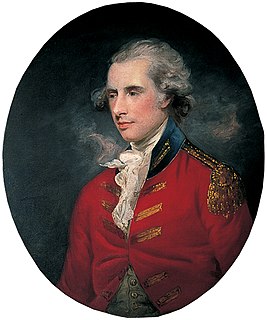 W
WHugo Meynell was an English country landowner and politician who sat in the House of Commons between 1762 and 1780. He is generally seen as the father of modern fox hunting, became Master of Fox Hounds for the Quorn Hunt in Leicestershire in 1753 and continued in that role for another forty-seven years.
 W
WHenry Willoughby, 6th Baron Middleton, was an English nobleman, the only son of Henry Willoughby, 5th Baron Middleton.
 W
WGeorge Osbaldeston, best known as Squire Osbaldeston, was an English politician who served as a Member of Parliament but who had his greatest impact as a sportsman and first-class cricketer.
 W
WWalter Rice Howell Powell was a Welsh landowner and Liberal politician. He was Member of Parliament for Carmarthenshire from 1880 until 1885 and for West Carmarthenshire from 1885 until his death in 1889.
 W
WJohn Sholto Douglas, 9th Marquess of Queensberry, was a Scottish nobleman, remembered for his atheism, his outspoken views, his brutish manner, for lending his name to the "Queensberry Rules" that form the basis of modern boxing, and for his role in the downfall of the Irish author and playwright Oscar Wilde.
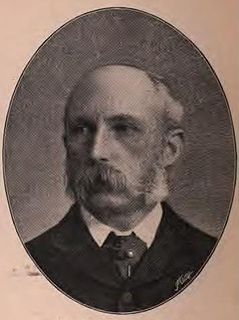 W
WSir James Rankin, 1st Baronet was a Conservative Party politician in the United Kingdom. He was Member of Parliament for Leominster from 1880 to 1885, and from 1886 until the general election of 1906, losing the seat by only 28 votes to the Liberal candidate. He regained the seat in January 1910 and resigned in March 1912. He was made a Baronet on 20 June 1898, of Bryngwyn, Herefordshire. He was a senior partner of the family timber and shipbuilding company, Pollok, Gilmour and Company. The Rankin Constitutional Club, in Corn Square, Leominster, is named after him.
 W
WWilliam Philip Molyneux, 2nd Earl of Sefton, also known as Lord Dashalong, was a sportsman, gambler and a friend of the Prince Regent.
 W
WMajor Bruce Middleton Hope Shand was an officer in the British Army. He is best known as the father of Camilla, Duchess of Cornwall, the second wife of Charles, Prince of Wales.
 W
WThomas Assheton Smith was an English landowner and all-round sportsman who was notable for being one of the outstanding amateur cricketers of the early 19th century. He was a Tory politician who sat in the House of Commons from 1821 to 1837. He was also known for his pioneering work on the design of steam yachts in conjunction with the Scottish marine engineer Robert Napier.
 W
WEdith Anna Œnone Somerville was an Irish novelist who habitually signed herself as "E. Œ. Somerville". She wrote in collaboration with her cousin "Martin Ross" under the pseudonym "Somerville and Ross". Together they published a series of fourteen stories and novels, the most popular of which were The Real Charlotte, and Some Experiences of an Irish R. M., published in 1899.
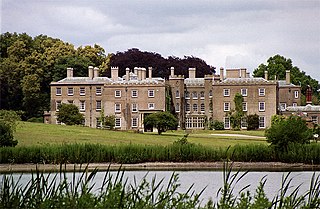 W
WGeorge Harry Booth-Grey, 7th Earl of Stamford and 3rd Earl of Warrington was an English cricketer, landowner and peer, who sat on the Whig benches in the House of Lords.
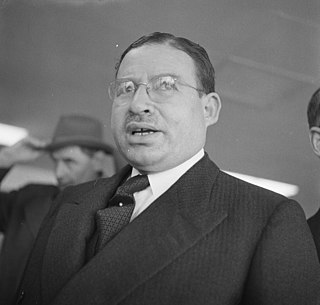 W
WSir Bernard Nathaniel Waley-Cohen, 1st Baronet was a British businessman. He was the 633rd Lord Mayor of London, elected in 1960.
 W
WRichard Greville Verney, 19th Baron Willoughby de Broke was a British peer and conservative politician.
 W
WCharles Alfred Worsley Pelham, 4th Earl of Yarborough, styled Lord Worsley until 1875, was a British peer and politician. Between 1890 and 1892, he served as Captain of the Honourable Corps of Gentlemen-at-Arms, meaning as Chief Whip in the House of Lords, for the Conservative government of Lord Salisbury.